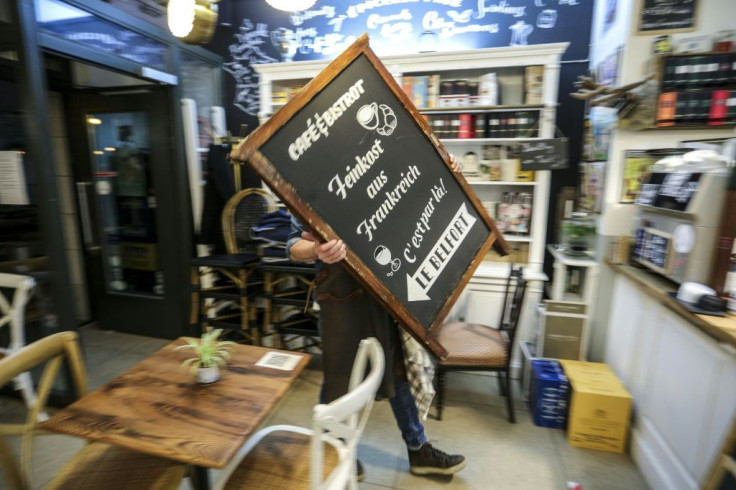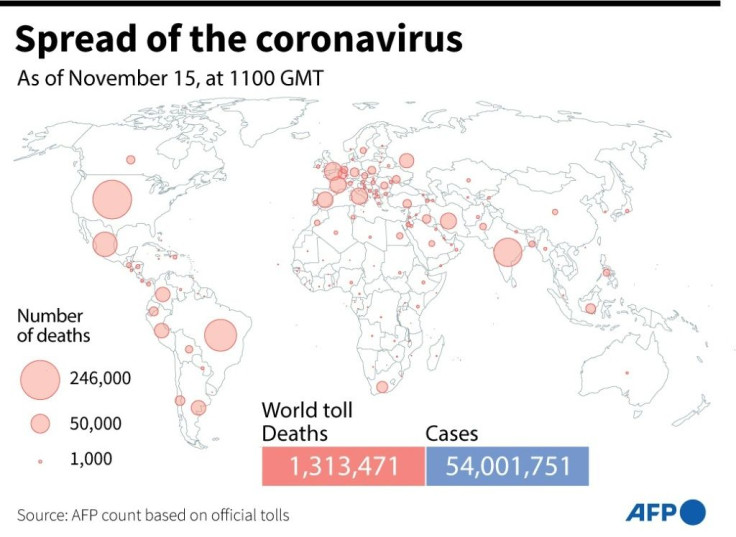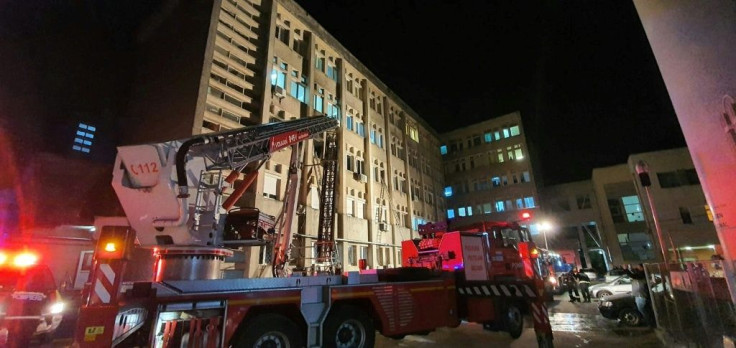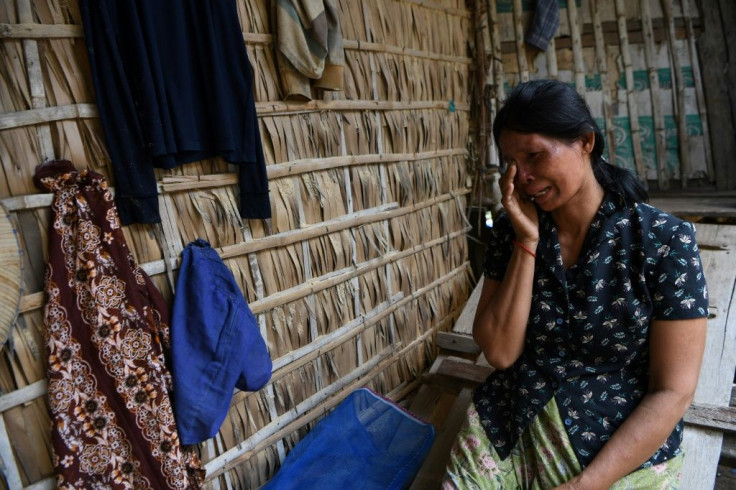Germany Warns Months More Virus Curbs As Daily Cases Record Set
Germany warned Sunday its anti-coronavirus measures were likely to stay in place for several months while a top scientist behind vaccine efforts hoped life could return to "normal" by next winter.
The predictions came as the World Health Organization unveiled data showing a record daily number of 660,905 new Covid-19 cases over the weekend.

"We will have to live with considerable precautions and restrictions for at least the next four to five months," Economy Minister Peter Altmaier told the Bild am Sonntag newspaper.
The government is to meet Monday to decide whether to extend new measures provisionally in place until month's end and as neighbouring Austria revealed it is planning mass testing as a second lockdown comes into force.
Ugur Sahin, the Turkish co-founder of German firm BioN, meanwhile told the BBC's "The Andrew Marr Show" that "this winter will be hard" in the absence of a vaccine.

But if vaccinations can be rolled out widely in the coming months, life could return to "normal" by next winter, he added.
Sahin's firm is developing the leading candidate in the global vaccine chase along with US giant Pfizer.
The number of Covid-19 patients in intensive care in Germany has soared from just over 360 in early October to more than 3,300 as a second coronavirus wave has engulfed much of Europe.

Saturday saw demonstrations across Germany against the restrictions, including one in Frankfurt where police used water cannon.
Meanwhile in Greece, police announced a ban on public gatherings of four or more people, adding that events and marches set to commemorate a 1973 student uprising would not take place this year.
The anniversary of the revolt against a military junta, considered to have helped restore democracy in the country, is treasured by many Greeks and was marked by a slew of demonstrations last year.

Opposition parties have pledged to proceed with events this year despite the new restrictions.

In Romania, 10 patients being treated for coronavirus were killed and others were in critical condition after a fire broke out in an intensive care unit in the country's northeast late Saturday.
The doctor on duty, who tried to help the victims, suffered second and third degree burns to 80 percent of his body, the rescue service said.
The cause of the blaze was unclear, with the health ministry suggesting it could have been caused by an electrical short circuit.

"I express my respect for the heroic doctor who showed particular courage and spirit of sacrifice," Prime Minister Ludovic Orban said.
Health workers were also hailed in the United Arab Emirates, which granted a 10-year visa to all doctors and infectious disease experts living in the country and fighting the pandemic.
Elsewhere, Mexico surpassed one million COVID-19 cases as its death toll, the world's fourth-highest, edged closer to 100,000.
"We probably still need to see the worst," Alejandro Macias, a former national commissioner against the AH1N1 influenza pandemic, told AFP.
Mexico's neighbour the United States is the worst-hit country with more than 245,000 deaths from more than 10.9 million cases.
But President Donald Trump has repeatedly played down the pandemic threat and few of the at least 10,000 of his supporters who attended a weekend demonstration in Washington wore masks.
Brazil's President Jair Bolsonaro has also played down the virus, despite his country having the second-highest death toll of more than 165,000.
A survey showed that 27 percent of Brazilians feared voting in Sunday's municipal elections because of Covid-19.
In poor countries with little regulatory oversight, more people are turning to licenced microfinance institutions during the pandemic to repay private lenders -- only to find themselves trapped in a cycle of crippling debt.
In Cambodia, tens of thousands of migrant workers have returned from Thailand as jobs have dried up, putting families living paycheck-to-paycheck under strain.
Microfinance has come under fire there for predatory tactics, including targeting rural villages where residents have limited financial acumen.
"Because of Covid, we could not find jobs," farmer Roeurn Reth told AFP tearfully, saying she fears she will lose her house and rice fields.
bur-erc/cdw/gd
© Copyright AFP 2024. All rights reserved.





















